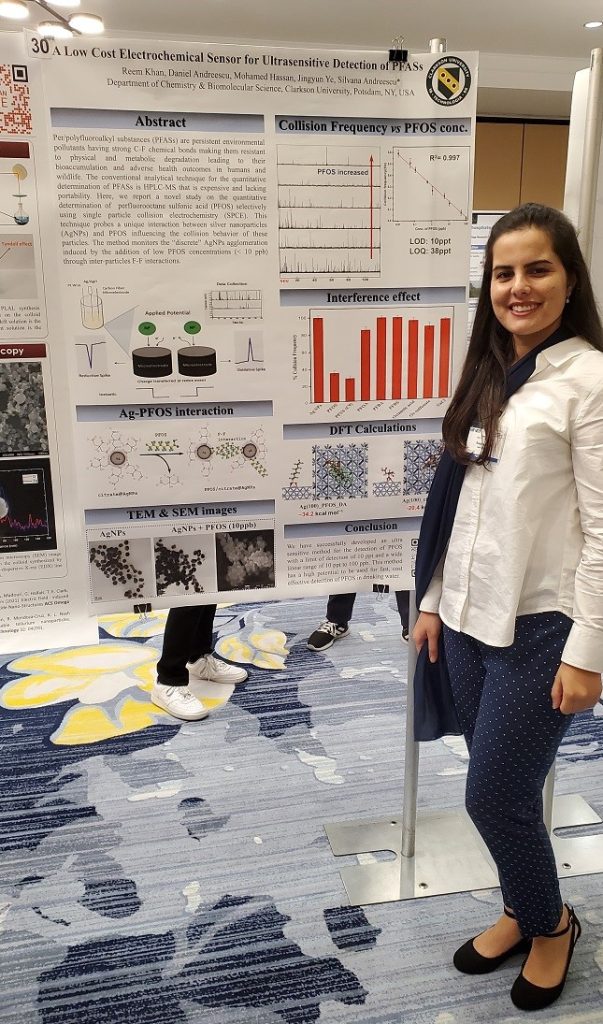Reem Khan, a chemistry PhD candidate working on the development of nanosensors for emerging contaminants in the laboratory of Clarkson Professor Silvana Andreescu, the Egon Matijevic Chair in Chemistry has received three awards at the 11th Sustainable Nanotechnology Conference in Austin, Texas. In addition to a travel award to attend the conference, Reem received awards for the best poster presentation and Nano Pitch contest. The Nano Pitch provided student participants with an opportunity to speak about their work for 100 seconds and win cash awards. A distinguished panel of judges evaluated each presenter based on their ability to convince the audience that their research on sustainable nanotechnology is important to solve a problem and it has immense broader impacts.

The conference, organized yearly by the Sustainable Nanotechnology Organization (SNO) is a premium destination for scientists, engineers and other professionals to exchange information and ideas for the development and use of nanotechnology to increase sustainability for environment, health and safety. The SNO is a non-profit, worldwide professional society comprised of individuals and institutions that are engaged in research and development of sustainable nanotechnology for the improvement of society, the environment and human health. SNO’s purpose is to provide a professional society forum to advance knowledge in all aspects of sustainable nanotechnology, including both applications and implications.
Reem and her advisor, Dr. Silvana Andreescu attended the conference on Nov 11-13 in Austin TX, presenting the group’s work on nanosensors for PFAS. Per- and polyfluoroalkyl substances (PFAS) are a group of synthetic chemicals that have been used in a wide range of industries and consumer products. PFAS are of growing concern because of their ubiquitous presence and harmful effects on the environment and human health. Reem’s presentation and Nano Pitch at SNO highlighted the use of nanoelectrochemistry, a method that relies on single-particle collisions on microelectrodes, to achieve insights into the molecular level interactions of PFAS and measure PFAS down to ppt levels. This new approach provides the foundational knowledge to advance the use of nanosensors for PFAS detection.
“Reem is an exceptionally talented young electroanalytical chemist who has a passion for research and is poised to make a significant impact to the development of novel tools and nanotechnology practices for environmental monitoring and sustainability. The three awards are a recognition of the quality of her work and outstanding performance presenting in front of a large international forum of experts in this field. I was incredibly proud to see Reem and Clarkson University on the podium, not once but three times, for each of the awards given at the conference. This all contributes to increasing Clarkson’s reputation nationally and internationally and recognizing our work at the intersection of nanotechnology and sustainability,” Andreescu said.
